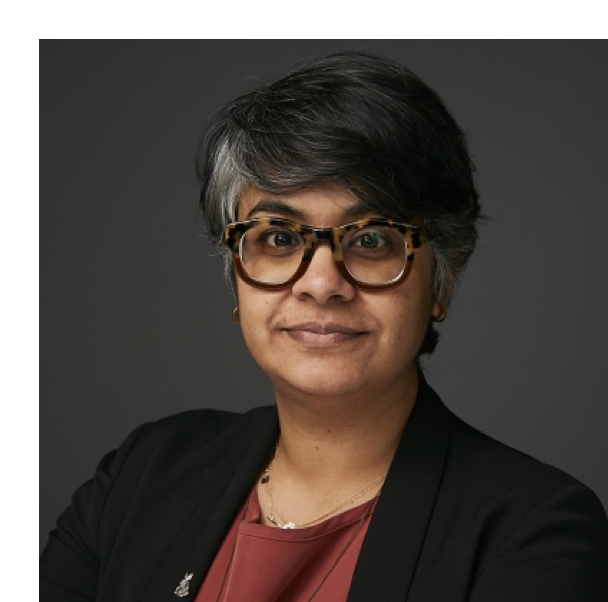Kairos care in a chronos world: Study explores how midwives navigate healthcare systems
September 29, 2021
The ancient Greeks had two different concepts of time: Chronos, which is governed by linear demands and measures (think the time measured on a clock), and Kairos, which captures the value of the experience as another way to measure time.
time measured on a clock), and Kairos, which captures the value of the experience as another way to measure time.
“Kairos time speaks to the quality of the time. It is about moments that matter, the feeling you get when you’re with a friend when hours can feel like minutes—because there is joy and deep connection or minutes can feel like days when you are suffering,” said P. Mimi Niles, PhD, MPH, CNM, assistant professor at NYU Meyers.
Niles connected the concepts of Chronos and Kairos to how midwifery care operates in maternity care settings in a new paper, based on her dissertation research as a PhD student at NYU Meyers and published in the journal Birth: Issues in Perinatal Care. Her study—which specifically focused on midwives in public hospitals, who work with communities most at risk for receiving poor and fractured care—used in-depth, semi-structured interviews with 20 midwives to explore the power dynamics of maternity care.
Niles’ work revealed that midwives attempt to preserve Kairos in their relationship-driven care while working in a system governed by Chronos that prioritizes empirical metrics, risk calculation, and technology.
“The values of Kairos mean connections, process and care for all parts of one’s life must be continually centered,” Niles tweeted. “Attempting to balance these two forces is where midwives in this study reported their work to be situated, as they try to operationalize a model that is relational with the values of Chronos that demand compliance, labor curves, and hierarchies be obediently followed.”
We spoke with Niles to learn more about her research.
What was your motivation to explore this topic?
Niles: As a midwife, I think about my work while I’m actually working. I am passionate about midwifery in general and often wonder why midwives are not the standard of maternity care in the U.S. the way we are in many other countries like the U.K., Japan, and Germany.
As a working midwife and now as a qualitative social researcher, I had the opportunity to study a workforce that we don’t know much about. I use the term “public health midwives” —as we are midwives working in public-serving healthcare institutions and we work in places where the people we care for bear the brunt of healthcare disparities rooted in racism and deep social, political and financial inequities.
Why did you decide to use the concepts of “Kairos” and “Chronos” in connection to midwifery?
Niles: Using metaphors are really useful in developing our human understanding and can help people understand concepts that might be foreign to them. The standard approach to maternity care—which is led by the medical model—expects all bodies to operate the same. Even labor is measured on a clock. I call this approach to care the Chronos world. And the midwifery approach to care is relationally driven—so for midwives, developing the relationship and honoring someone’s unique experience, needs, and culture, and honoring the moment of birth, is defined as Kairos care. In Kairos care, the quality of our care is just as important as the mechanics of care.
Why do you think this friction emerges between midwives’ Kairos care and a health system’s Chronos orientation?
Niles: Health care systems are designed around efficiency, time management and optimization —this can leave very little room to allow for people’s personal needs, desires and expectations to be met. When midwives try to operationalize their Kairotic approach in a place that was not designed to make time and space for these types of relationships to flourish (like a hospital), a tension naturally arises. It is what happens when two different value systems must coexist. There is also a hierarchy around which values are prioritized—physicians and the medical model is rooted in interventions, technology and diagnostics, which is the way all healthcare is oriented—to maximize payments. Ultimately, the childbearing person suffers from this value misalignment and it has prevented the large uptake of the midwifery care model from becoming the standard of maternity care in the U.S.
What does this study add to our understanding of midwives serving disenfranchised communities, particularly women of color in cities like New York?
Niles: Public health midwives in New York City are one key strategy to transforming our healthcare system to become more person-centered. BIPOC women need care that is culturally respectful, that honors one’s autonomy and their choices, and midwifery care is built to do this. Our model is rooted in feminist principles of care where your body is yours, your choices are honored, and your needs are respected. BIPOC women consistently report being disrespected and mistreated in their care. We need a deep transformation around how care is organized and a way to put the power in the healthcare relationship back into the hands of the service users. I believe by integrating midwifery care throughout the system, we can build a more loving and compassionate maternity care system.